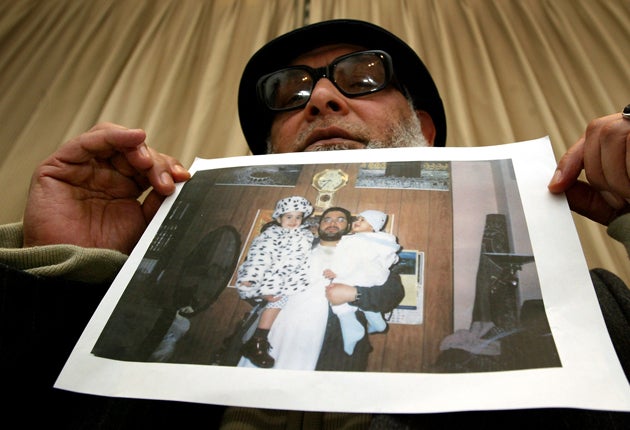Miliband snubbed by US over prisoner's release
Attempt to secure freedom for last Briton in Guantanamo Bay is rejected

Your support helps us to tell the story
From reproductive rights to climate change to Big Tech, The Independent is on the ground when the story is developing. Whether it's investigating the financials of Elon Musk's pro-Trump PAC or producing our latest documentary, 'The A Word', which shines a light on the American women fighting for reproductive rights, we know how important it is to parse out the facts from the messaging.
At such a critical moment in US history, we need reporters on the ground. Your donation allows us to keep sending journalists to speak to both sides of the story.
The Independent is trusted by Americans across the entire political spectrum. And unlike many other quality news outlets, we choose not to lock Americans out of our reporting and analysis with paywalls. We believe quality journalism should be available to everyone, paid for by those who can afford it.
Your support makes all the difference.The government has clashed with the Obama administration over the return of the last UK resident to be held at Guantanamo Bay.
Foreign Office officials yesterday confirmed that Foreign Secretary David Miliband last month made an "exceptional" request to the US for the release of Shaker Aamer, but that his appeal has been rejected.
Mr Aamer, 42, who lived with his British wife and four children in London for five years after arriving in Britain in 1996, has been detained at the prison camp in Cuba since February 2002 after his capture in Afghanistan in December 2001. He was later handed over to American forces and held at Bagram prison, where he claims he was subjected to torture during interrogations.
Britain made its first request for the release of Mr Aamer to representatives of the Bush administration in August 2007. Mr Miliband was known to have discussed Mr Aamer's release with Hillary Clinton after President Obama's election victory, but it was not known until yesterday that a second request had been made.
A Foreign Office spokesperson said: "We have made an exceptional request for the release and return of Shaker Aamer, a Saudi national, to the UK.
"This is because of the exceptional nature of the Guantanamo facility and our sustained efforts to see it closed. Though we were successful with securing the return of four other non-UK nationals, we have not been able yet to do so with Shaker."
Mr Aamer has never been charged with an offence.
This week the High Court in London ruled that there was evidence of wrong-doing in Mr Aamer's case and ordered the UK Government to disclose secret documents that Mr Aamer alleges prove Britain was complicit in his torture.
The case is potentially more damaging to Britain than that of former Guantanamo detainee Binyam Mohamed because British agents are accused of being present during Mr Aamer's alleged torture. In one allegation an MI5 agent is said to have been present when Mr Aamer's US interrogators banged his head against a wall, although the agent did not intervene.
In his court victory on Tuesday two judges ruled that Mr Aamer was entitled to see UK Government documents relating to his detention. His lawyers say they contain evidence supporting his claims that confessions he made were obtained through torture.
Lord Justice Sullivan said: "Our present view is that this matter is clearly very urgent. If this information is to be of any use it has to be put in the claimant's hands as soon as possible."
Later Mr Aamer's solicitor, Irene Nembhard, said: "It is the first ray of light for Shaker and his family. [They] will be overjoyed and they will be expecting that the British Government will give their lawyers the documents to assist them in persuading the Americans to release Shaker." President Obama made the closure of the US naval base a key priority when he was elected last year. He set himself a deadline of one year but has since admitted that he will not be able to meet this target.
Clive Stafford Smith, the director of UK legal charity Reprieve, has represented Mr Aamer in the US. He said that the British and American governments seem to working in unison to keep information about Mr Aamer's treatment from being made public. "It seems to be another big example of the British government working with the US to hide their mutual wrongdoing," he said.
The US have told the UK that they believe Mr Aamer represents a security risk.
Join our commenting forum
Join thought-provoking conversations, follow other Independent readers and see their replies
0Comments